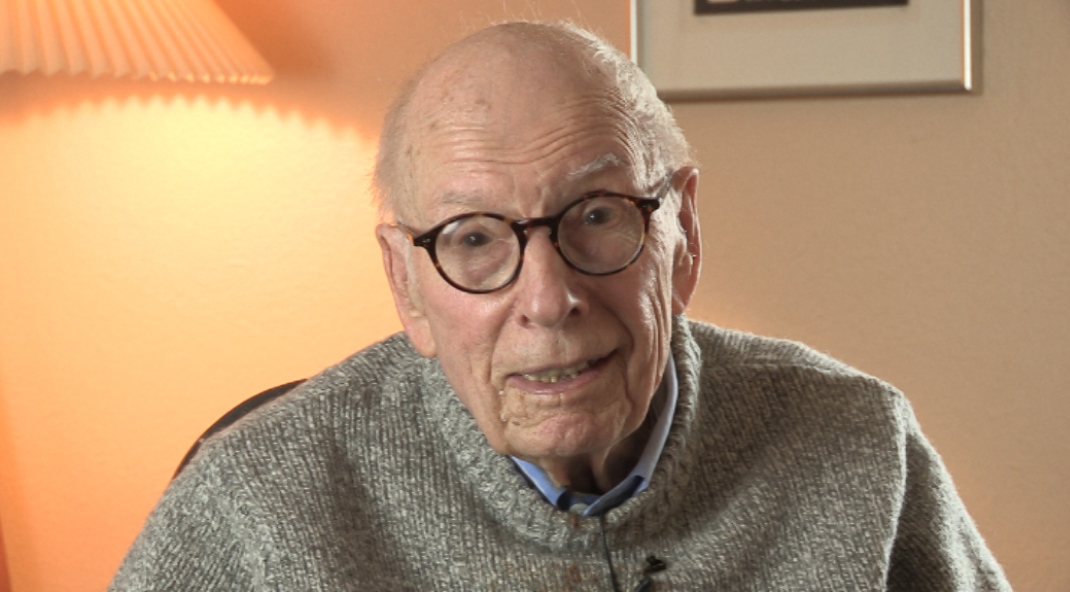NEXT STORY

Learning about high altitude physiology
RELATED STORIES

NEXT STORY

Learning about high altitude physiology
RELATED STORIES


|
Views | Duration | |
|---|---|---|---|
| 31. Demonstrating chemotaxis in development | 31 | 02:20 | |
| 32. Wallowing in the developmental aspects of slime mold | 37 | 02:48 | |
| 33. I’m a 19th century biologist | 40 | 01:35 | |
| 34. Learning about high altitude physiology | 28 | 02:55 | |
| 35. Testing the effects of decompression | 24 | 01:56 | |
| 36. Conducting experiments while still in the army | 23 | 02:23 | |
| 37. Giving slime molds a name | 28 | 01:30 | |
| 38. Learning about the facts of life | 32 | 01:57 | |
| 39. Life was fun in Locust Valley | 36 | 04:56 | |
| 40. A typical adolescence | 49 | 00:39 |


[Q] When you met other scientists, and they'd say, what are you working on? And you'd say, slime molds. Was that… I mean, now it's quite a very popular subject, but did people express scepticism that you could be so interested?
No, because I would say as a developmental of slime molds. And they knew they developed and so it seemed like a perfectly legitimate worry.
[Q] Because it's about one of the biggest questions in biology, I guess.
Yes, and particularly so then. I mean, now it's so involved in regulatory genes, and this, that and the other thing that the kind of experiment which I was doing back then really doesn't exist anymore. But I've always felt that I was at heart, and in fact, a 19th century biologist because they continue to be really interesting questions that do not involve molecules. I've got nothing against molecular biology. I think it's wonderful, but there are other things.
John Tyler Bonner (born in 1920) is an emeritus professor in the Department of Ecology and Evolutionary Biology at Princeton University. He is a pioneer in the use of cellular slime molds to understand evolution and development and is one of the world's leading experts on cellular slime molds. He says that his prime interests are in evolution and development and that he uses the cellular slime molds as a tool to seek an understanding of those twin disciplines. He has written several books on developmental biology and evolution, many scientific papers, and has produced a number of works in biology. He has led the way in making Dictyostelium discoideum a model organism central to examining some of the major questions in experimental biology.
Title: I’m a 19th century biologist
Listeners: Christopher Sykes
Christopher Sykes is an independent documentary producer who has made a number of films about science and scientists for BBC TV, Channel Four, and PBS.
Tags: scientists, slime mold, experiment, molecular biology
Duration: 1 minute, 35 seconds
Date story recorded: February 2016
Date story went live: 14 September 2016